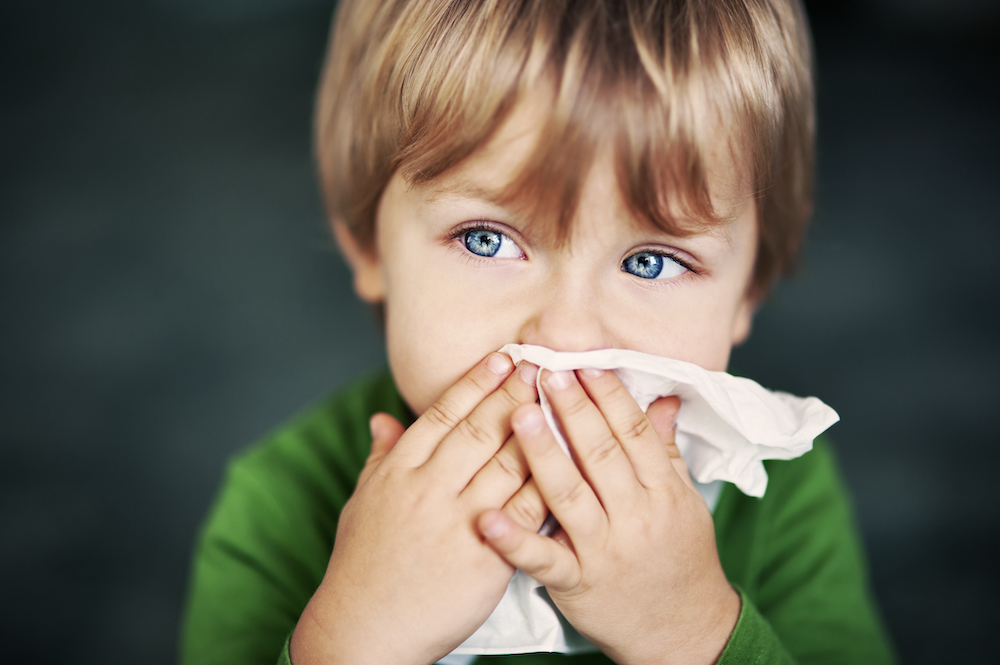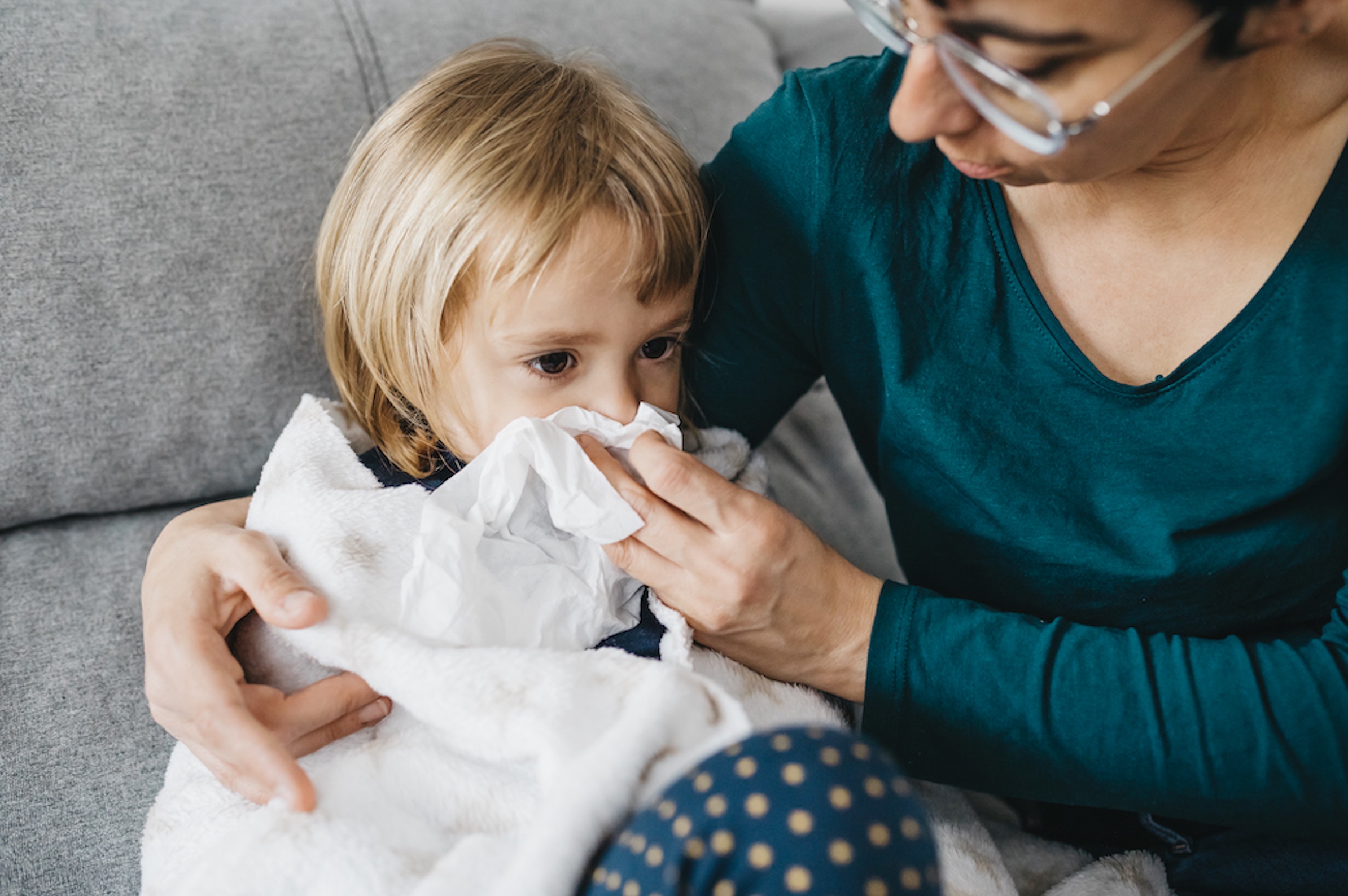
Coughs and sneezes are back. Ease the common cold with common sense from AHN Pediatrics.
“My kids bring home the worst germs. What can I do to stop the never-ending rounds of runny noses, coughs, and colds?”
Despite your best efforts, your kids will get colds. On average, babies and toddlers get eight to 10 colds per year before they turn 2.*
The good news is that most colds don’t lead to anything worse and go away by themselves. Here are some steps you can take to prevent colds and make your little ones feel better.
“To protect your family against colds, upper respiratory infections, and the flu, follow the rules for COVID-19,” said Dr. Brook McHugh of AHN Pediatrics. “Wash your hands. Stay home when sick. Stay away from other people who are sick. Get vaccinated.”
“And teach your child to sneeze or cough into their elbow. If they cough into their hand and touch another child, they spread the virus,” Dr. McHugh said. “Also, don’t let babies under 3 months interact with anyone who has a cold, even grandma.”
Strategies that don’t work
While many of us teach our children to follow these rules, some parents use questionable tactics. According to a 2019 Mott Poll report:**
- 51% of parents gave their child a vitamin or supplement.
- 51% gave their child an over-the-counter product advertised to prevent colds.
- 52% used “folklore” advice, such as not letting children go outside with wet hair.
- 31% kept their children away from playgrounds during the cold season.
“There’s no medical evidence that vitamins or over-the-counter products can help protect against colds, so don’t waste your money,” said Dr. McHugh.
The best things you can do when your child has a cold is to make sure they get plenty of rest, eat fruit and vegetables rich in vitamin C, and drink lots of water. Remember that:
Antibiotics don’t work against a cold virus. Over-the-counter cough and cold medications aren’t helpful for children and can have unpleasant side effects. Acetaminophen or ibuprofen (Children’s Tylenol, Advil or Motrin) can help reduce fever and relieve pain.
You can help to soothe a sore throat or ease breathing by using:
- A cool mist humidifier.
- Extra pillows for support (not in cribs).
- Honey (not for babies under 1-year-old).
- Nose wash, saline nasal spray, and a suction device.
Flu season starts in October
Babies (over 6 months) and children should get a flu vaccine and, if eligible, a COVID-19 vaccine. While they may still catch the flu or COVID-19, their symptoms will be less severe, and they’ll be far less likely to end up in the hospital.
Flu season starts in October, so check with your pediatrician. If they are eligible, your children can get a COVID-19 vaccine or booster and a flu shot at the same time.
When to call the pediatrician
If a child under 3 months gets sick, always call the pediatrician to learn if it’s serious and prevent it from turning into bronchiolitis, croup, or pneumonia. For an older child, cold symptoms should go away in seven to 10 days.
Call the doctor if your child has any of these problems:
- Trouble breathing or breathing too fast
- Lips or nails that turn blue
- Nasal mucus for more than 14 days
- Cough lasting more than two days
- Ear pain
- A temperature over 102° F
- Unusually sleepy or cranky
Every child is different, so talk to your pediatrician or contact AHN Pediatrics if you have any concerns about a sick child.
*https://www.healthychildren.org/English/health-issues/conditions/ear-nose-throat/Pages/Children-and-Colds.aspx
**Mott Poll Report. Preventing colds in children: Following the evidence? January 21, 2019. Volume 33, Issue 3. https://mottpoll.org/reports/preventing-colds-children-following-evidence
